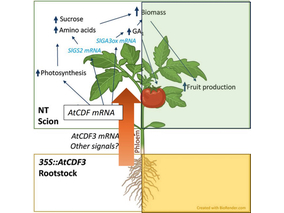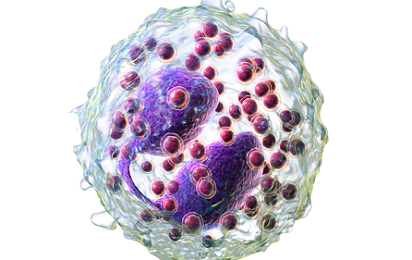CiQUS researchers have developed a new catalytic methodology based on palladium complexes, through which it is possible to carry out tandem cycloisomerisation/cross-coupling processes on a special type of alkylidenecyclopropanes, leading to the production of different cycloalcohols.
The study led by CiQUS PI, Fernando López and José Luis Mascareñas, demonstrates the crucial influence that ligands attached to the metal centre have on the control of the evolution of cyclopalladium intermediates in these catalytic processes. This new synthetic methodology has high potential for the rapid and efficient preparation of cyclic alcohols and amines.
Reference
Felipe Verdugo, Ricardo Rodiño, Martín Calvelo, José Luis Mascareñas and Fernando López; Palladium-Catalyzed Tandem Cycloisomerization/Cross-Coupling of Carbonyl-and Imine-Tethered Alkylidenecyclopropanes, Angewandte Chemie Int. Ed. Wiley. 2022. https://doi.org/10.1002/anie.202202295

AtCDF3 gene induced greater production of sugars a...

Un estudio con datos de los últimos 35 años, ind...

Un equipo de investigadores de la Universidad Juli...

En nuestro post hablamos sobre este interesante tipo de célula del...

It has been examined whether atherosclerosis can be avoided in HGPSrev...
Biotechnology portal in Spain
Subscribe to our newsletter and stay up to date with the latest news and deals!
2013 © Biotech-Spain.com - Site Developments SL. All Rights Reserved. Terms of Service | Privacy Policy
Articles
Directory
